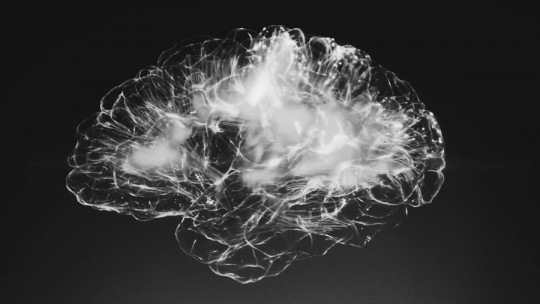
Although we normally talk about memory as if it were a whole, the truth is that there are several types of memory, each with its own internal logic. Furthermore, each of these memories stores a different kind of information. For example, emotional memory stores information related to the emotional state, while declarative memory works with information that can be verbalized.
Just as there are different forms of memory, amnesia, which is a harmful alteration in the functioning of this cognitive process, does not always manifest itself in the same way.
In this article We will see the characteristics of transient global amnesia one of the strangest memory disorders.
What is transient global amnesia?
We know it as transient global amnesia. a disorder in which the person is unable to remember the events they have experienced during the last minutes or hours and some unimportant information about what happened to him long ago, although he preserves memories related to his own identity and is capable of forming new memories.
Thus, the symptoms of this type of amnesia focus on the past, and not on the ability to transform present events into memories. It is therefore about a retrograde amnesia because it affects only the recovery of memories already stored.
Thus, a person with transient global amnesia may ask, “How did I get here?” and not knowing what happened during his journey to the place he currently occupies, although he does remember his name and, probably, his characteristics and personality traits, family ties and friends, place of work, etc.
Symptoms
The main symptoms of transient global amnesia are the following:
On the other hand, it should also be noted that during the crises produced by this type of amnesia, the person does not lose consciousness at any time, as any witness can assure if there is one.
Additionally, the symptoms of transient global amnesia dThey should disappear before 24 hours have passed from its onset (normally they do not last more than 8 hours), and other cognitive functions should not be damaged. Furthermore, during this attack of amnesia symptoms associated with epilepsy should not appear either.
If these last criteria are not met, it is considered that another type of amnesia has been suffered.
Course of this disorder
Transient global amnesia comes abruptly and, as we have seen, without loss of consciousness. As time passes, usually after two hours from its beginning, Memories that had been “blocked” are accessible again gradually (the first to be “recovered” are usually the oldest).
Causes
The causes that produce transient global amnesia are not clear, and there is probably not just one, but several.
For example, it has been hypothesized that in some cases their symptoms may be due to a deficiency of blood flow to small parts of the brain so that there are no detectable consequences.
Small ischemic accidents could cause the cognitive abilities that occur in the brain to be hindered or even prevented for a time, until this set of organs can recover from this problem.
On the other hand, it is also possible that certain traumatic events affect memory. However, this explanation has a flaw, as we will see.
Differences from other memory disorders
It must be taken into account that transient global amnesia It is relatively benign, since its effects disappear in a few hours and by definition leaves no sequelae. However, it can be confused with other types of amnesia. A similar effect could occur with great efforts or sudden changes in temperature.
In global amnesia, for example, many things about what happened in the past are forgotten, but this information will not be recovered. On the other hand, in drug-induced amnesia, a specific cause that produces the symptoms is known.
As for traumatic events, it is known that these are capable of causing us to not store information about what is happening in the present for a time, due to the secretion of corticosteroids over an area of the brain known as hippocampus. However, this is not what happens in transient global amnesia, since in the latter the problem is in accessing already stored memories, not in storing new memories. Therefore, its nature is purely retroactive, while the stress of traumatic moments has effects in the form of anterograde amnesia, as far as is known.








